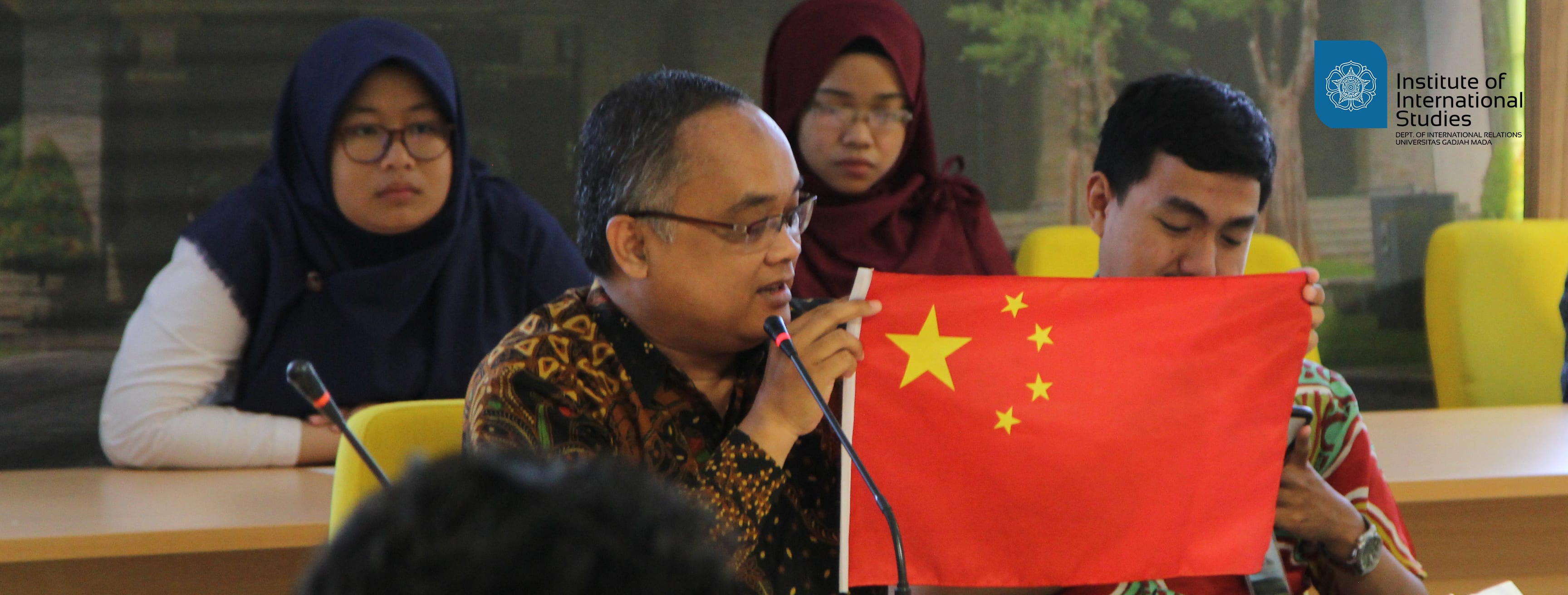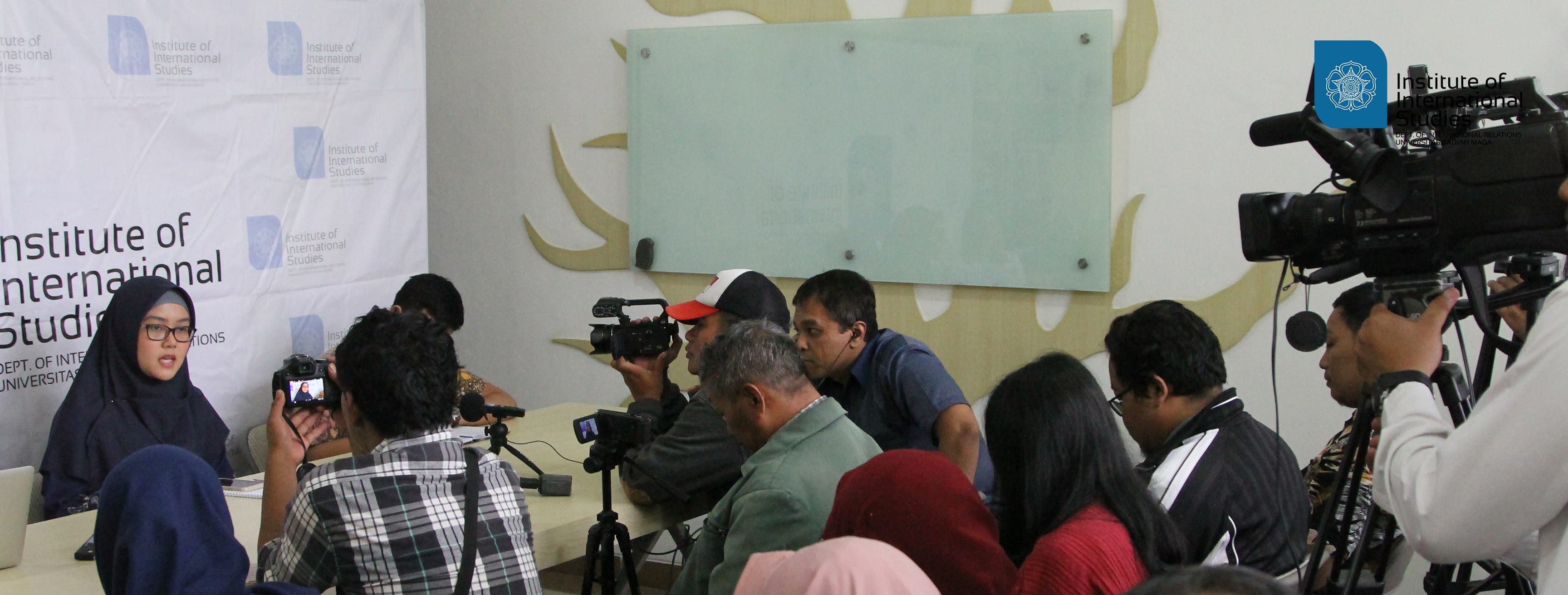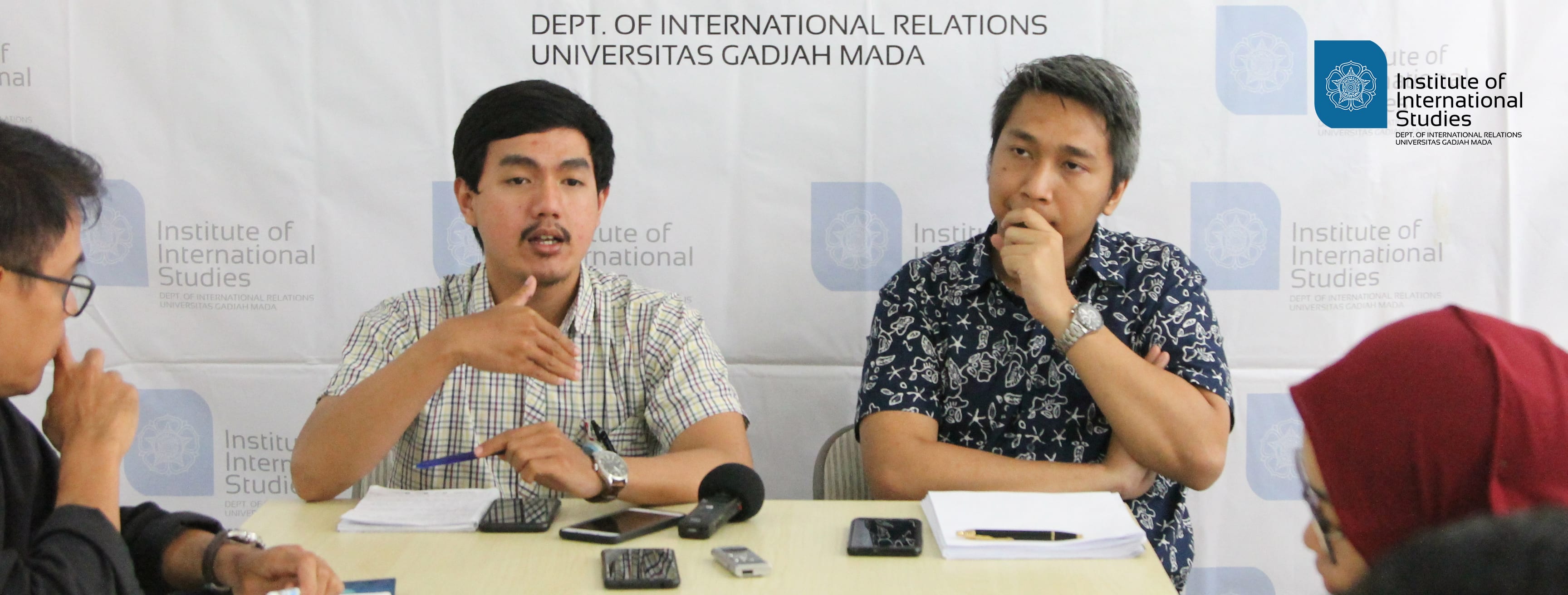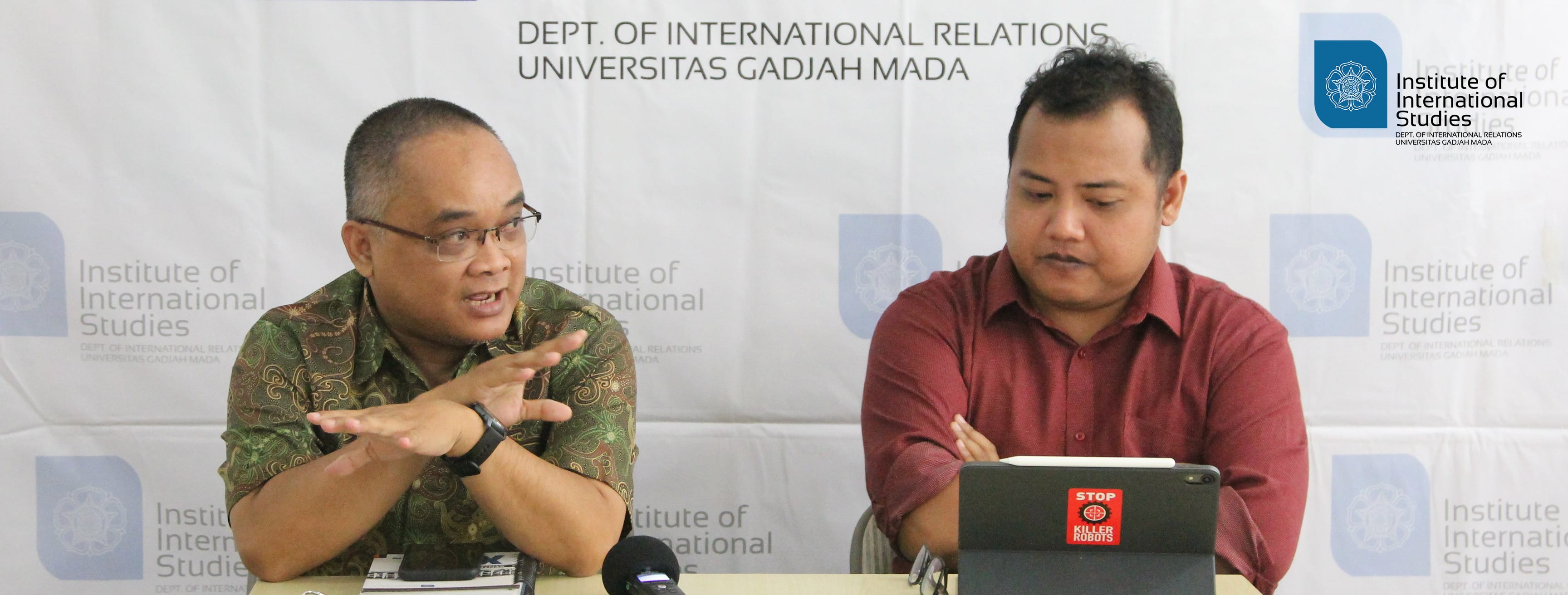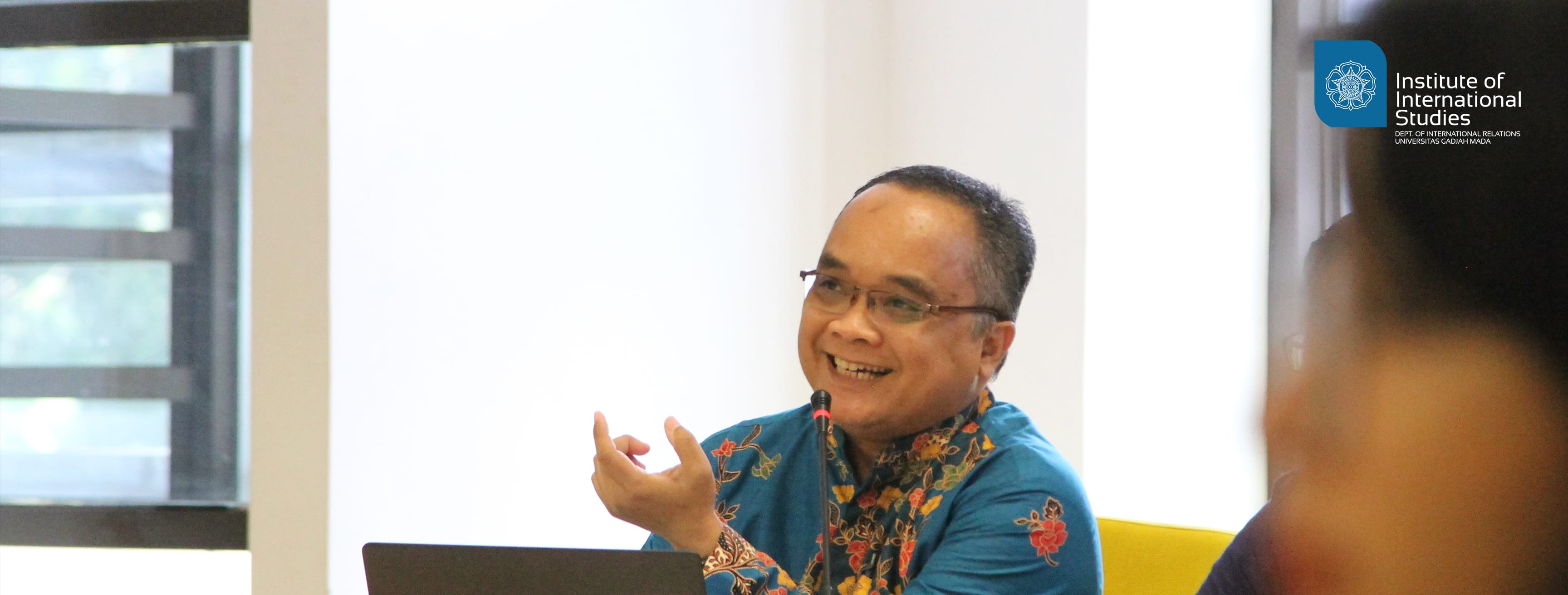Pada hari Senin, 24 Februari 2020 Institute of International Studies, Universitas Gadjah Mada (IIS UGM) menyelenggarakan sesi ketiga kegiatan Globalization Talk yang bertajuk “Global Citizenship and Educating on Globalization”.
Past Events
Beyond the Great Wall #, 7 is the first edition of the notorious Beyond the Great Wall Forum that occurs in the year of 2020.
Beyond The Great Wall #7 merupakan edisi pertama forum Beyond The Great Wall di tahun 2020. Pada kesempatan kali ini, Institute of International Studies, Universitas Gadjah Mada (IIS UGM) mengundang dua pembicara untuk membahas mengenai tantangan di awal tahun 2020 bagi pemerintah Cina yang dapat menghambat perkembangan ekonomi Cina.
Pada Rabu 5 Februari 2020, Institute of International Studies, Universitas Gadjah Mada (IIS UGM) mengadakan konferensi pers untuk membahas mengenai pengaruh politik dan ekonomi dari penyebaran virus 2019-nCoV atau yang lebih popular disebut sebagai Wuhan Novel Coronavirus.
On Wednesday (05/02), Institute of International Studies, Universitas Gadjah Mada (IIS UGM) held a press conference that ruminates over the impact of 2019-nCoV dispersion or widely known as the Wuhan Novel Coronavirus to the Global Political Economy.
Indonesian should be proud with the newly-introduced Medium Altitude Long Endurance (MALE) drone named Elang Hitam (translated as: Black Eagle), on the end December 2019.
Masyarakat Indonesia tentunya boleh berbangga dengan diperkenalkannya Pesawat Udara Nirawak (PUNA) terbaru kelas Medium Altitude Long Endurance (MALE) pada akhir Desember 2019 lalu yang diberi nama Elang Hitam.
On Tuesday (14/1), the Institute of International Studies, Universitas Gadjah Mada (IIS UGM) held a press conference to discuss two important issues in international politics in early 2020.
Tuesday (01/14/2020), Institute of International Studies, Department of International Relations, Universitas Gadjah Mada (IIS UGM) held a press conference responding the issue of conflict escalation between the United States and Iran.
Environmental interests often clashes with economic ones, as if we have to choose one and sacrifice the other. However, one of the eco-city projects in China, Tianjin Eco-City, says otherwise.


